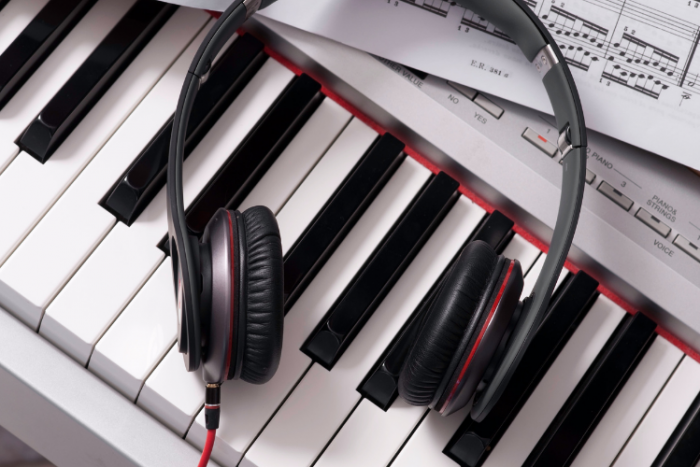In 2021, the microchip crisis came to fruition and one year on we're still in the same mess. One trend that is becoming increasingly prevalent within the business world is the global demand and shortage for microchips. Now known as #Chipageddon, what does this mean for you, the customer and the digital piano industry as a whole?
Ultimately this is a global issue and affects everything from phones, to cars to fridges (basically any electronic device) but when it comes to pianos, for those looking to purchase either a new digital piano, or upgrade their existing digital, many of you will have noticed that there is a lack of digital pianos across all levels around the globe.
There are a whole host of reasons for this and not all of them are what you might expect, so today we wanted to help offer you some insight into how this affects both you, the digital piano industry and what it might mean for the future..

COVID-19
Right, let’s get the obvious one out of the way.
During the first wave of the pandemic, COVID-19 forced people to stay at home. Almost all of us have a lockdown story to share and we all seemed to have gained some kind of new hobby or interest during this time, but it’s estimated that as many as 75% of us took up an instrument or developed an active interest in music of some kind. This new resurgence in music is fantastic and actually one of the few reasons to celebrate the pandemic as it has offset the massive fall there was in professional instruments being used as a result of a lack of gigs and performances.
So as more and more people began taking up the piano, due to their lower entry level cost and digital convenience digital pianos, and in particular “home pianos” became increasingly in demand. These pianos are designed as semi-permanent placed instruments that are light enough to be moved, but heavy enough to not be fully portable, whilst these are not stage pianos you might see at Glastonbury, they do offer users a great instrument to play on when starting their musical journey, so it’s no surprise their demand surged during the pandemic.

Brexit
Also not really a surprise, did Brexit cause an issue with piano supply? Yes toward the end of 2020 there were a lot of issues as many businesses attempted to get more stock into the country before Brexit. Almost every industry experienced issues with ports that were over capacity, ships couldn’t dock, and a massive backlog of goods was then created. This caused a particularly large problem around and just after Christmas when demand for pianos and consumer products is at a yearly high anyway.
So now, one year on from all this mess and as the tone for 2022 sets into motion where are things?
Since then, the situation has corrected itself and these port delays are largely all over now, so this can’t be a problem still can it? Well...Yes and no. Whilst the ports are now in a far stronger position to shift goods, Brexit has had a knock-on effect to supply chains. These were generally well planned by the manufacturers, what they hadn’t counted on was a worldwide pandemic on top and sales skyrocketing whilst people stayed at home, meaning that the production was not kept in line with the demand level, so fewer pianos were produced than required. In terms of importing goods, additional paperwork is still causing some issues and delays too, however this is largely improving,

The Microchip Problem
Yes...#Chipageddon is very real and is about to ramp things up to a new level for almost all industries that dabble in consumer electronics.
So sure, Brexit & COVID-19 were going to impact the digital piano industry anyway, however here’s the real kicker that no-one really saw coming. As you can expect, with digital technology becoming increasingly integrated into almost everything we do, microchip supply has been progressively increasing and demand has now exceeded supply, almost to a crisis point.
To put it simply, there are more “things” that require microchips in the world today than ever before and we’re burning through them at a much faster rate. As we’ve increased the number of smart devices, just think about the sheer number of smartphones, tablets, smart TV’s, smart fridges in the world - almost everything now has a microchip and every device that uses a microchip typically needs replacing every few years.
When it comes to digital pianos, this is still very much the same. Unsurprisingly there’s a lot of data in a digital piano to create the ideal sound without reducing quality, so microchips are needed to perform different functionality. However what is different is that the shortage has been further compounded by a fire in one of the major chip manufacturers in Japan. The producer, AKM, was a leading supplier to a number of the world’s largest piano manufacturers. Following the boom in uptake of pianos caused by COVID-19 and just when the industry was hoping to produce more instruments, the factory fire hit both stock and supply, meaning digital piano production came to a near standstill. Whilst manufacturers have sought to adapt and change, there is still an enormous deficiency in digital pianos whilst the world’s demand and supply normalise to previous levels.
Supply levels have still been hugely affected by the microchip crisis. In some cases we are looking as far ahead as 2023 for lines which were once considered 'staple'. Where we were once able to received these items in a matter of days, we're genuinely looking towards 2023 for many.

When will #Chipageddon end?
In all honesty, there’s no real short term solution for the chip crisis currently in sight, however plans are being made to increase supply on a global basis. For example President Joe Biden has recently pledged a review of semiconductors (chips) manufacturing in the US, with a potential $37 billion on creating domestic factories in the US.
The issue however still remains as these factories will take a few years to build and get to a level of stable chip production. Because 3 out of 4 of the current global chip manufacturers are located in Asia and one company in particular TSMC produces around half of the world’s microchips, it isn’t looking like there is a solution in sight.
So what does this mean? According to semiconductor industry experts, the shortage does not look like it will ease up anytime soon. It is predicted have an effect on technology manufacturing and hardware prices well into 2022, if not 2023.
So what does this all mean?
As you can likely guess, the combination of these factors, as well as countless other external conditions have resulted in a combination of high demand and less production, meaning there will be less musical instruments with microchips available in the foreseeable future and they will ultimately be more expensive. Some manufacturers have even announced that they are discontinuing certain colours in order to maintain supply of more popular colours.
Whilst this is a shame for the digital piano world, the acoustic piano world couldn’t be further from that and over the past year, production has not been impacted and their popularity also continues to grow.
The leading reason that many people opt for a digital piano over an acoustic is because they can be played through headphones. What fewer people know though is that technology has progressed within the acoustic industry to an incredible level and silent options on real acoustic instruments are now readily available and can be fitted to most models.
Silent systems essentially allow for the combining of acoustic feel with digital convenience. As these are simple add-on systems, they can be easily installed, giving the acoustic instrument the flexibility and connectivity of a digital instrument. A lot of people often dismiss acoustic instruments because they worry about neighbours or disturbing others - with silent systems however, our technicians can fit them in just a few hours, giving you a fully silent piano with the real touch and tone of an acoustic...This level of functionality may even save a perfectly good instrument from being scrapped!
Unlike digital models, acoustic pianos are incredibly long lasting and retain their value unbelievably well, much like many digital consumables, digital piano prices drop rather quickly when a new model is released after every few years. Because of the investment and craftsmanship that goes into an acoustic piano, they not only last longer and are less prone to breaking, but they hold their value unbelievably well so when it is time for an upgrade or a change, you’ll almost certainly see a level of return that you wouldn’t get on a digital. Many retailers (us included) also accept part-exchanges on instruments.
So in summary, if you are considering a digital piano, have you really considered the potential benefits an acoustic piano may bring? There really is nothing like the tone of a true acoustic and with technology always progressing, many may find that now an acoustic piano with a fitted silent system, could be the answer to help fulfilling their musical needs!

